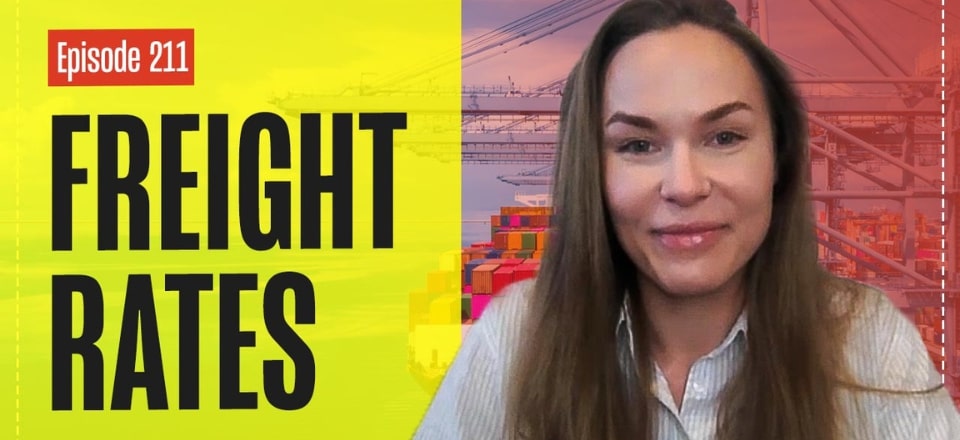The freight “rate” isn’t the whole story. Attempts to cut freight costs frequently miss the mark by focusing on the wrong aspects. To fully grasp freight rates, you need to analyze rate structures and consignment profiles, as your freight carrier already does.
This understanding allows for more strategic cost management. By considering these factors, you can ensure your logistics operations are both cost-effective and efficient, leading to better overall performance and significant savings in the long run.
Discover more on this topic by watching the video below!
Common Pitfalls in Freight Rate Management
Rob: This week’s focus is on freight rates and the common mistakes people make. We’re joined by Urszula Kelly, who will help us understand these issues. Welcome back, Urszula! It’s great to have you with us again. Many specialists, including yourself, indicate that it’s not just about the cost. What are some common mistakes people make regarding freight rates?
Misaligning Freight Costs with Shipping Needs
Urszula: Unfortunately, Rob, it’s not just about the dollar amount, even though that would simplify things. The major issue arises when rates don’t align with the freight profile and volume. For example, if you consistently ship 8-10 pallets between Sydney and Melbourne every week but are charged full trailer rates, you’re not making the most of your expenditure. Many clients end up paying for a full trailer load or per pallet space when these rates don’t match their actual shipping profile. It’s important that the rates reflect your usage to ensure efficient spending.
Rob: That’s a great observation. We often see clients who believe they have a good rate, but upon reviewing the rate card, discrepancies appear. They might think they’re getting a favorable rate for pallets from point A to B but are missing out on better rates for full truckloads or for shipping specific pallet quantities.
Unexpected Charges Due to Incomplete Rate Cards
Urszula: Another frequent mistake is dealing with incomplete rate cards. Clients often encounter unexpected charges like marriage fees or additional costs for loading and unloading. It’s crucial to ensure that all potential charges are included in the rate card to prevent unpleasant surprises when the invoice arrives.
Rob: That’s an important point. Having a thorough understanding of your operational needs can help avoid these issues. I recall a situation where a client faced significant costs due to inefficient loading processes. Better clarity on rate cards could have helped manage these costs.
Failure to Regularly Review Rate Cards
Urszula: The third mistake is neglecting to review rate cards regularly. Even if a rate card appears favorable initially, market conditions and available rates can change. It’s important to reassess your rate card every 6-12 months to ensure you’re not overpaying.
Rob: Absolutely. Staying updated with market rates is essential, but internal changes also play a role. Changes in your freight profile, such as new products or market expansions, can affect your needs. Regular reviews are necessary to adapt to these changes and avoid overpaying.
The Importance of Relationship Management
Rob: Let me add a fourth point regarding the relationship with your freight company. While maintaining long-term relationships and open communication is valuable, it’s also crucial to ensure that these relationships have a commercial foundation. Good relationships shouldn’t lead to overpaying for services. It’s about balancing a strong partnership with fair pricing.
Urszula: Absolutely! A good relationship with your freight provider is essential, but it must be backed by fair and competitive pricing.
For detailed discussion of this topic, watch the full video above.
Related articles on this topic have appeared throughout our website, check them out:
- 10 Freight Management Mistakes and How to Avoid Them
- Freight Benchmarking: What Is It? Why Do It?
- Why Containerised Freight Shipping is Daunting for SMEs
- The Challenge of Freight Container Utilisation and Why it Matters
- Container Freight Costs and Forecasting: Intrinsically Linked & Frustratingly Challenging
Editor’s Note: The content of this post was originally published on Logistics Bureau’s website dated September 20, 2023, under the title “Freight Rates & Reducing Your Logistics Costs“.


